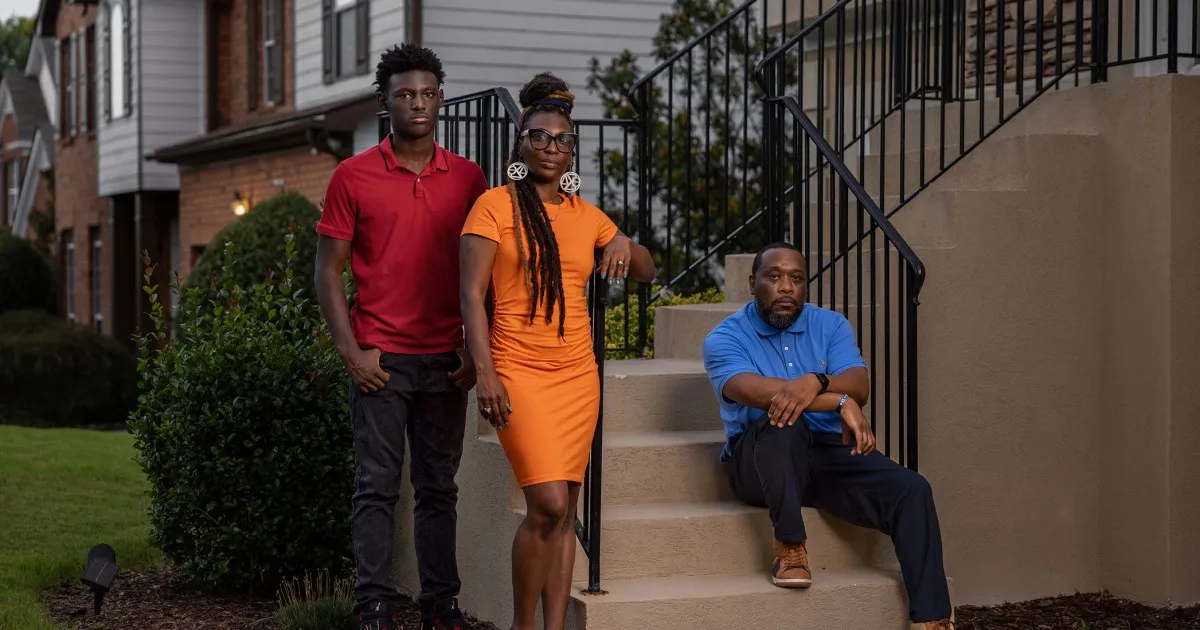
On Thursday, the Supreme Court breathed new life into a significant lawsuit against the FBI, allowing a damages claim to move forward after agents mistakenly raided the wrong residence in Atlanta. This ruling represents a crucial win for the plaintiffs: Toi Cliatt, his former girlfriend Trina Martina, and her son Gabe Watson, all of whom were present during the traumatic incident that took place in October 2017.
The unanimous decision, authored by Justice Neil Gorsuch, enables the plaintiffs to pursue claims of assault, battery, and false imprisonment under the Federal Tort Claims Act (FTCA). This act is one of the rare legal pathways that allows individuals to hold federal officials accountable for misconduct. The ongoing litigation will now proceed in the 11th U.S. Circuit Court of Appeals, situated in Atlanta.
Patrick Jaicomo, a lawyer with the libertarian Institute for Justice, which represents the plaintiffs, expressed optimism about the ruling, stating, "We look forward to continuing this fight with the Martins in the Eleventh Circuit and making it easier for everyday people to hold the government accountable for its mistaken and intentional violations of individual rights."
This case brings to light the pressing issue of law enforcement mistakenly raiding the wrong residences—an occurrence that has been documented in several high-profile cases across the nation. Initially, a district court judge and the appeals court ruled in favor of the government. The crux of the legal debate centered on whether a specific provision within the FTCA, which permits claims regarding the actions of federal law enforcement officers, is overridden by the discretionary function exception. This exception protects certain judgment calls made by officials from liability.
While the court did not definitively resolve this complex legal question, it did eliminate a significant barrier that previously hindered the plaintiffs from arguing their case in lower courts. Justice Gorsuch noted, "We readily acknowledge that different lower courts have taken different views of the discretionary function exception. We acknowledge, too, that important questions surround whether and under what circumstances that exception may ever foreclose a suit like this one."
In a separate concurring opinion, Justice Sonia Sotomayor suggested that there are valid reasons to consider that the discretionary function exception should not impede the plaintiffs' claims. Her opinion received support from Justice Ketanji Brown Jackson, further emphasizing the legal complexities surrounding this case.
During the raid, agents entered the home with their guns drawn, employing flash-bang grenades in the process. Cliatt was handcuffed and forcibly restrained on the floor, while Martina was prevented from reaching her son, who was only 7 years old at the time. Young Gabe woke to find armed agents in his bedroom, creating a deeply distressing scene. The agents vacated the premises quickly upon realizing their mistake, and a supervisor later returned to offer an apology.
The Justice Department contended that the FBI's actions were based on a Garmin GPS device that led the team to the house, indicating that they believed they were at the correct location. However, the traumatic effects of the raid on the family cannot be understated, raising critical questions about the accountability of law enforcement in similar situations.